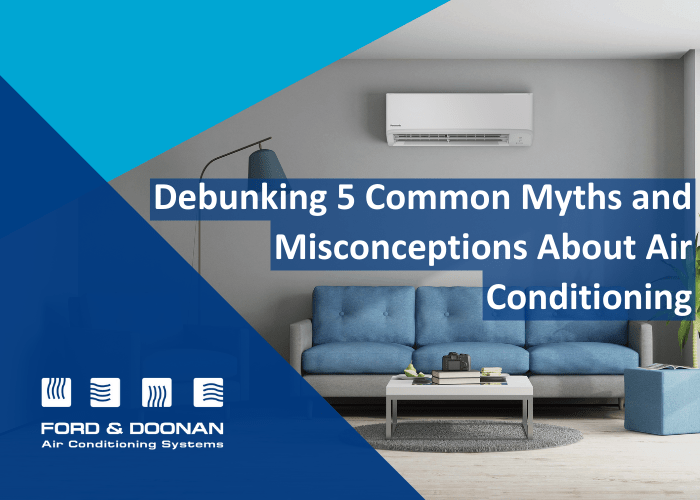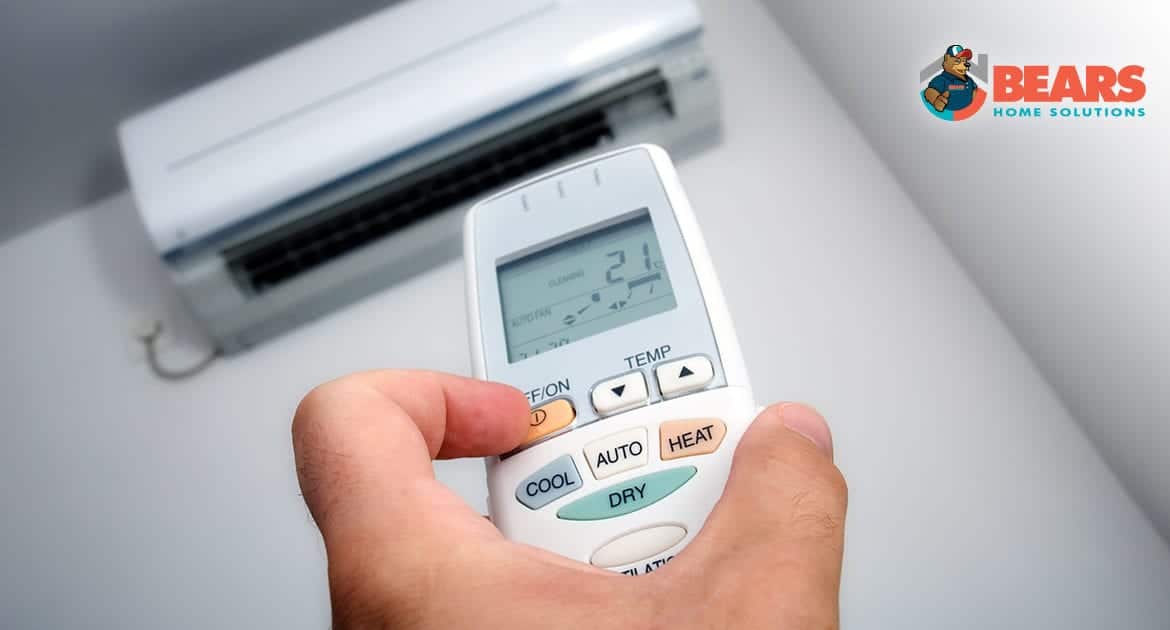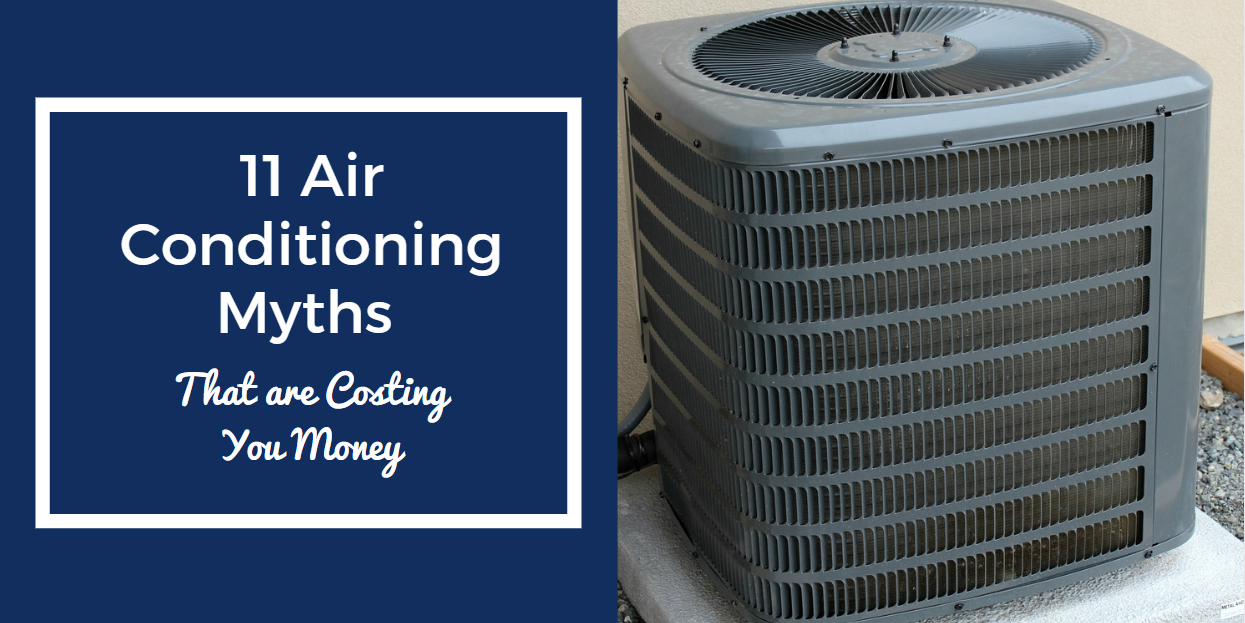Welcome to an eye-opening discussion on common air conditioning myths surrounding temperature control. In this article, we will debunk misconceptions about setting the thermostat too low to cool the room faster, the notion that bigger AC units are more effective, and the belief that leaving the unit on all day is more efficient than turning it on and off. Let’s clear the air on these widely believed myths and learn the truth about efficient temperature control with your air conditioning system.
Common Air Conditioning Myths About Temperature Control
Do you ever find yourself questioning if you’re maximizing the efficiency of your air conditioning unit? There are many myths surrounding temperature control and air conditioning that could be affecting the way you use your system. Let’s address some common misconceptions and set the record straight to help you optimize your cooling experience.
Myth 1: Lowering the Thermostat Temperature Will Cool Your Home Faster
Imagine this: you come home on a scorching summer day and immediately drop the thermostat to 60 degrees in hopes of cooling down your home quickly. Unfortunately, this isn’t how air conditioning units work.
In reality, air conditioning units function at a consistent rate regardless of the temperature set on the thermostat. Lowering the temperature does not expedite the cooling process; it simply tells the unit to keep running until the set temperature is reached. Therefore, setting your thermostat to a lower temperature than necessary will waste energy and put unnecessary strain on your unit.
Myth 2: Closing Vents in Unused Rooms Will Save Energy
Next time you’re tempted to close off vents in rooms that are not in use, think twice. Contrary to popular belief, closing vents hinders the airflow in your HVAC system and makes it work harder to maintain the desired temperature throughout the house.
When you close vents in an attempt to save energy, you are disrupting the balance of air pressure in your system. This can lead to leaks in your ductwork or cause your unit to work harder than necessary, ultimately increasing your energy bill. It is best to keep all vents open and unobstructed to ensure optimal performance from your air conditioning system.

This image is property of www.fordanddoonan.com.au.
Myth 3: A Larger Air Conditioner Is Always Better
Bigger is not always better when it comes to air conditioning units. Some homeowners believe that purchasing a larger unit will cool their home faster and more efficiently. However, this is a common misconception that can actually lead to poor performance and energy wastage.
An oversized air conditioner will cool your home too quickly, causing the unit to cycle on and off frequently. This not only consumes more energy but also fails to effectively remove humidity from the air, resulting in a damp and uncomfortable indoor environment. To ensure optimal performance and efficiency, it is essential to choose an air conditioner that is the right size for your living space.
Myth 4: Setting the Thermostat at a Lower Temperature Will Save Energy
It’s a hot summer day, and you’re tempted to crank down the thermostat to its lowest setting to escape the heat. Unfortunately, this action does not equate to energy savings.
Setting your thermostat lower than necessary will only lead to wasteful energy consumption as your air conditioning unit continues to run to reach the set temperature. To save energy and maintain a comfortable indoor environment, set your thermostat to the highest temperature at which you feel comfortable and use ceiling fans or portable fans to circulate cool air.

This image is property of cielowigle.com.
Myth 5: Turning Off the Air Conditioner When You Leave Saves Energy
Believe it or not, turning off your air conditioner every time you leave the house may not be the most energy-efficient choice.
When you turn off your air conditioner, the indoor temperature of your home rises, especially during hot summer days. As a result, your air conditioner will have to work harder and consume more energy to cool down the space when you return. Instead of turning off the unit completely, consider setting your thermostat a few degrees higher when you’re away to conserve energy without compromising comfort.
Myth 6: Air Conditioners Only Need Maintenance If They’re Not Working Properly
Maintenance is key when it comes to prolonging the lifespan of your air conditioning unit and ensuring its optimal performance. Some homeowners believe that maintenance is only necessary when their unit malfunctions or fails to cool the space adequately.
In reality, regular maintenance, such as cleaning or replacing filters, checking for leaks, and inspecting the overall condition of the unit, is crucial to prevent costly repairs and extend the life of your air conditioner. By staying proactive with maintenance, you can ensure that your unit operates efficiently and effectively throughout its lifespan.

This image is property of www.netrinc.com.
Myth 7: Your Air Conditioner Doesn’t Need to Be Serviced Every Year
You may think that servicing your air conditioner every other year or when it shows signs of a problem is sufficient. However, routine annual maintenance is essential to keep your unit running smoothly and efficiently.
Annual servicing allows HVAC professionals to inspect your air conditioner for potential issues, clean and lubricate components, and ensure that the system is operating at its best. By scheduling regular servicing, you can catch minor problems before they escalate into major repairs, saving you time, money, and the hassle of a broken air conditioner during the peak cooling season.
Myth 8: Air Conditioners Do Not Need to Be Cleaned Regularly
It’s easy to overlook the cleanliness of your air conditioning unit, especially when it’s tucked away in a corner of your home. However, neglecting regular cleaning and maintenance of your air conditioner can lead to a host of issues, including reduced efficiency, poor indoor air quality, and potential breakdowns.
Dust, dirt, and debris can accumulate on the filters, coils, and vents of your air conditioning unit, obstructing airflow and hindering its ability to cool the space effectively. To keep your air conditioner in top shape, make sure to clean or replace filters regularly, clear debris from outdoor units, and schedule professional cleaning as needed.

This image is property of bearshomesolutions.com.
Myth 9: Closing Doors and Windows While Running the Air Conditioner Increases Efficiency
Closing doors and windows while running your air conditioner may seem like a foolproof way to improve its efficiency. In reality, this action can create a pressure imbalance within your home and hinder the airflow of your system.
To achieve optimal performance from your air conditioning unit, it’s important to maintain proper ventilation and airflow. Leaving doors and windows open can help circulate fresh air throughout your home, reduce the workload on your air conditioner, and improve indoor air quality. Plus, natural ventilation can lower humidity levels and create a more comfortable living environment.
Myth 10: Air Conditioners Are Maintenance-Free Appliances
While modern air conditioning units are designed to be durable and efficient, they are not entirely maintenance-free appliances. Regular upkeep and care are necessary to ensure that your unit operates at its best and lasts for years to come.
From cleaning filters and coils to lubricating moving parts and inspecting the overall condition of your unit, routine maintenance is essential to prevent breakdowns, reduce energy consumption, and maintain indoor comfort. By staying proactive with maintenance tasks, you can enjoy a reliable and efficient air conditioning system throughout the seasons.

This image is property of assets-global.website-files.com.
Conclusion
Temperature control and air conditioning are essential components of indoor comfort, but many myths and misconceptions surround their proper usage. By debunking common myths and understanding the best practices for optimizing your air conditioning unit, you can ensure efficient cooling, lower energy bills, and a comfortable living environment for you and your loved ones. Remember to schedule regular maintenance, keep your filters clean, and use your thermostat wisely to make the most of your air conditioning system. Stay cool and informed!




